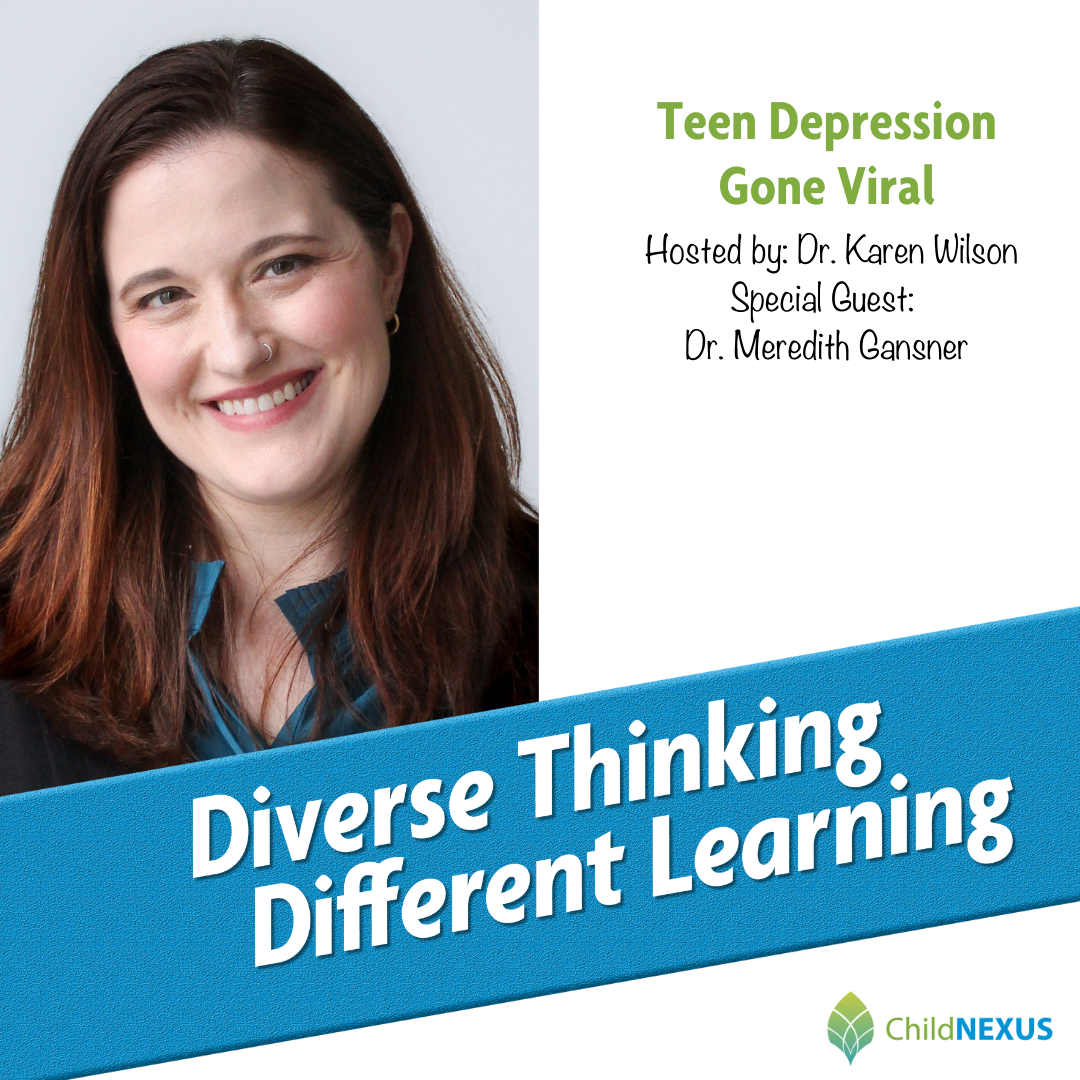Mar 04 2025 39 mins 1
We are joined this week by Dr. Meredith Gansner. Dr. Gansner is a child psychiatrist at Boston Children’s Hospital and an instructor of Psychiatry at Harvard Medical School, specializing in high-risk digital media use in teens. She has received multiple research grants, including a K23 career development award from the National Institute on Drug Abuse, and she is an active member of the American Academy of Child and Adolescent Psychiatry media committee. Her first book, Teen Depression Gone Viral, explores the challenges of treating adolescent depression in the digital age.
In this episode, Dr. Meredith Gansner discusses depression in teens, something that has been on the rise especially in today’s digital age. She sheds some light on how adolescent depression often looks different from adult depression, sometimes showing up as irritability, aggression, or even physical symptoms like headaches and stomach pain. She helps us break down why it’s so important for parents to recognize these signs early on and seek professional support instead of just dismissing them as typical teenage behavior.
Dr. Gansner also examines the relationship between social media and mental health. While some teens find support online, others are exposed to harmful content that can reinforce unhealthy coping mechanisms and worsen or even cause poor mental health. She offers some practical advice on improving digital media literacy, setting boundaries, and developing safety plans to help young people engage with the internet and social media in a way that is not detrimental to their well-being.
Dr. Gansner also discusses effective treatments for teen depression, stressing a multi-faceted approach including lifestyle changes, therapy, and medication when appropriate. She also clarifies the differences between suicidal thoughts and non-suicidal self-injury, offering guidance on how parents and caregivers can respond with the right level of support. With a focus on family-based strategies, this conversation with Dr. Meredith Gansner helps provide insightful information for anyone looking to strengthen emotional resilience in today’s teenagers!
Show Notes:
[2:13] - Dr. Gansner reflects on initially feeling optimistic about addressing mental health in youth online but grew frustrated.
[5:56] - The youth mental health crisis peaked during COVID and remains a pressing issue.
[6:23] - Depression is a physiological illness with many contributing risk factors.
[8:03] - Teen depression often manifests as irritability or anger, making it harder for parents to recognize.
[11:29] - Some children with depression experience physical symptoms like headaches or stomachaches.
[13:08] - Hear about the inspiration behind the title of Dr. Gansner’s book.
[15:53] - Social media spreads both helpful and harmful information about depression, requiring careful oversight and guidance.
[18:32] - Social media can both support and worsen teens' mental health, creating harmful echo chambers.
[19:26] - Dr. Gansner feels that rather than banning social media, teaching digital literacy can help children take on harmful content.
[21:40] - Teaching teens responsible internet use with guidance, like learning to drive, helps ensure safer engagement.
[24:43] - What are some of the best ways to treat depression in teens?
[27:31] - Parents often struggle to differentiate suicidal thoughts from non-suicidal self-injury in teens.
[28:05] - Dr. Gansner explains that non-suicidal self-injury involves self-harm without suicidal intent, often as a distress signal or coping mechanism.
[31:21] - Simply telling teens to "just stop" self-harm can lead to shame, worsening depression and leading to a harmful cycle.
[33:17] - Improving sleep is important for teens' emotional resilience, helping prevent impulsive decisions and risky behaviors.
[36:58] - Parents limiting their own screen use helps depressed teens feel supported and less isolated.
[38:38] - Be sure to get Dr. Gansner’s book at a discounted price here!
Links and Related Resources:
-
Episode 131: Cognitive Behavior Therapy for Kids and Teens with Dr. Shadab Jannati
-
Episode 148: How Sleep Affects Academic Performance and Mood
-
Episode 169: The Science of Exercise and the Brain with Dr. John Ratey
Connect with Us:
Connect with Dr. Meredith Gansner:
